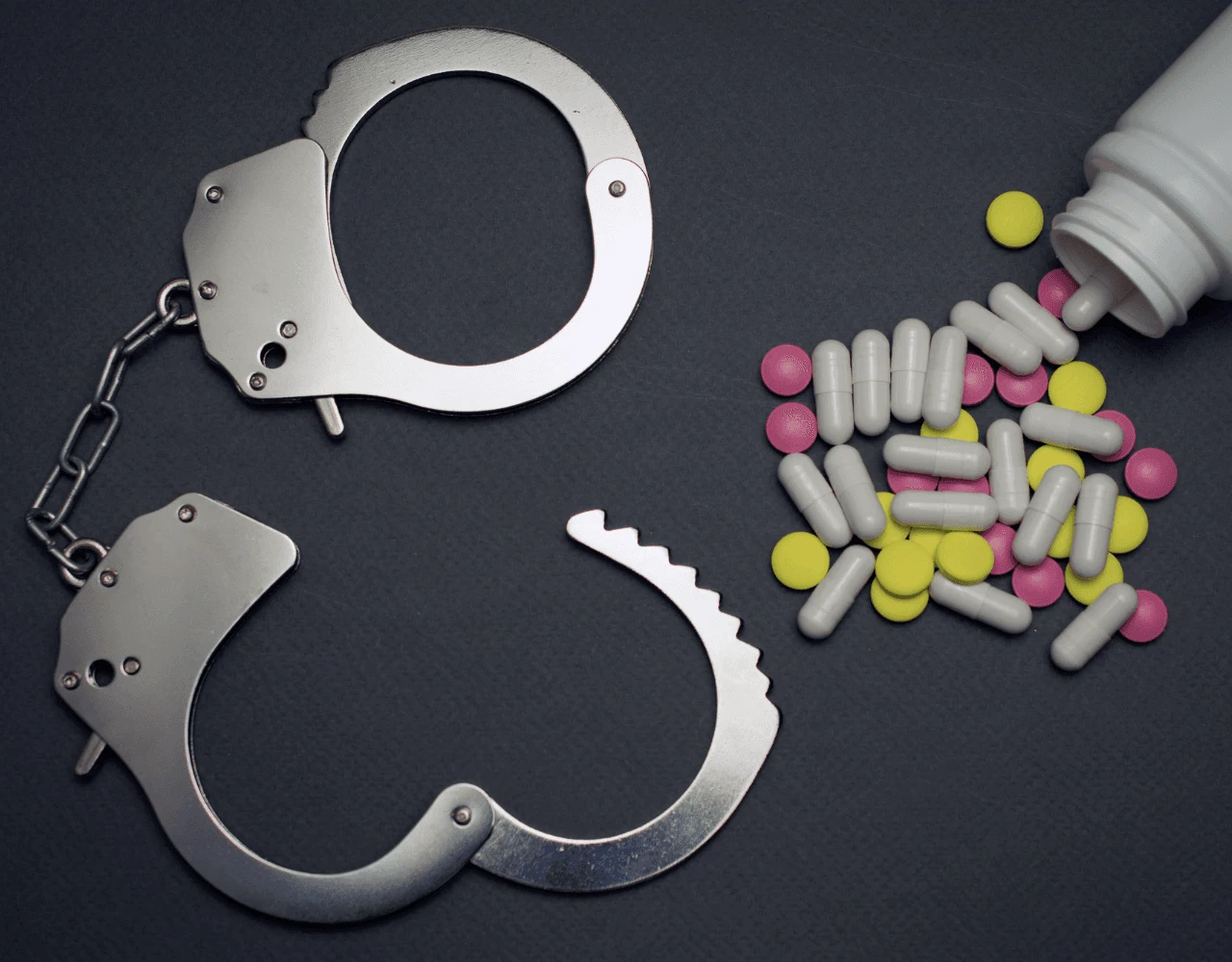Alternative Sentencing Options for Drug Charges in Chicago
2025-04-23T13:15:00
One of the biggest problems for any teenager charged with a DUI is not only are they facing a license suspension but they are also facing a life long conviction for DUI on their record which can have an impact on their education, employment, and even their ability to take out a line of credit. If you have been charged with an underage DUI or your child has been charged with a DUI, it is important to hire a lawyer ASAP to fight the charges to help protect their future.
Over 3000 teenagers meet a tragic and untimely death in a drunk driving accident every year. Additionally, there are more alcohol-related traffic accidents caused by drivers in the 16 – 20 age bracket than in any age bracket over 21. The reasons for these high statistics have a lot to do with simple inexperience in driving combined with ignorance in responsible drinking –– add to this the adolescent tendency to throw caution to the wind and risk life and limb in the pursuit of a thrill and the recipe for tragedy is complete.
Intoxicated teenagers driving at any speed put other motorists and themselves at great risk. This is why the laws that pertain to teenage drunk driving may seem unusually severe to some but have also been found effective at reducing this threat to life and limb.

Parents can help their children by ensuring that their children are able to attend any counseling that the court has ordered. Going to counseling is very important in order to keep their record clean.
The most important step in your child’s case will be to make sure to avoid a conviction on the DUI. A conviction will be on your child’s record forever and will result in an additional two-year revocation of their driver’s license.
Unfortunately in Illinois, once you have a DUI on your record, it will be on their record forever. That is why it is important to contact an attorney to either beat the case or amend the case to another charge.
In Illinois, a DUI cannot be expunged or sealed. If convicted of a DUI it will be on your son or daughter’s record forever.
When charged with a DUI the worst possible outcome for a first-time offender is up to 364 days in Jail. For a minor under the age of 21 that is not a likely sentence that the court would impose.
The best possible outcome would be to beat the case and your son or daughter is found not guilty of the case. If that is not likely, often attorneys can amend the charges to reckless driving to avoid a DUI always showing up on their record.
By the 1980s, the number of deaths and injuries caused by teenage drunk drivers had reached a critical level and prompted the instigation of Zero Tolerance Laws. Federal financial incentives and the seriousness of the situation caused these laws to take effect in all states.
There are two components to zero-tolerance laws, and these are the “Illegal per se laws” and “administrative per se laws.” “Per se” is a Latin term meaning “in and of itself.”

In other words, illegal per se laws state that teenage drunk driving is inherently unlawful and needs no proof, motive, or further investigation. Once the teenager has been found with alcohol in their blood while operating a vehicle, the DUI arrest will be immediate.
By the same measure, administrative per se laws mean that the driver’s license of a teenager found drinking and driving will be categorically suspended or revoked entirely by the Department of Motor Vehicles (DMV) or Registry of Motor Vehicles (RMV).
These two components of the zero-tolerance law represent mandatory penalties that will be applied in addition to whatever penalties the courts choose to use to the offending adolescent. There has been some concern and criticism about the severity of zero-tolerance laws applied to minors who may be bringing home an intoxicated friend.
Nevertheless, there is no mistaking the results. The zero-tolerance policy has shown to be an effective method over the past few decades in preventing reckless endangerment. The rate of teenagers being killed due to drinking and driving has dropped dramatically. After all, freedom-loving teenagers will often value their driver’s license over the temptation of drinking and driving.
The punishments exacted on teenagers that drink and drive are very different depending on the state where the crime occurs. However, they are always found far more rigid on first-time offenders than the same crime would be for an adult offender.
The reason is that they face more charges for the same action. A teenager will face penalties for under-aged drinking as well as those for driving under the influence. If a teenager has a Blood Alcohol Content (BAC) of any higher than 0.05% – 0.07% they can be charged with adult DUI and underage DUI, which increases the charges and hereafter the penalties.
Then it is often the case that other charges accompany the DUI offense, this includes but is not limited to possession of alcohol by a minor, distribution of alcohol to other minors, violation of child endangerment laws, soliciting alcohol from an adult and possibly the use or possession of a fake ID.
The minor’s DUI will be charged as a class one misdemeanor, and this stays on your record as an adult. There may also be other reprisals in the form of community service or even fines as high as thousands of dollars. Suspended licenses may remain so for as long as two years, and most often the teenager will have to provide proof of financial responsibility before they can get their license reinstated.
In more complicated situations, a teenager with a DUI will also face jail time as long as a year for first-time offenses. Those teenagers who have been caught drinking and driving for the second time will always receive mandatory jail time. The amount of time served can be as long as a few days to several years, depending on how severe the circumstances.
A teen convicted of DUI may also face a probation period of anywhere from 3 to 5 years. They may also be required to attend educational classes on drug and alcohol abuse and may even be required to participate in Mothers Against Drunk Driving (MADD). If the teen is found with exceptionally high levels of BAC, they may be required to undergo recovery in an inpatient treatment center.

Even after the minor’s driver’s license has been reinstated, the consequences continue. They may have to install an ignition device in their car that allows the courts to monitor their driving more carefully. This device will have to be installed at the expense of the driver and will be installed on the car they use most frequently.
Then there will be cases where the courts may deem it necessary to impound the car rather than install the ignition device. It should be noted that trial or conditional licenses are also harder for the minor convicted of a DUI to apply for. For example, someone convicted of a traffic violation may be provided with this type of license when they have to drive their car to commute to work or school. The court will allow the convicted driver to drive to and from specific locations.
Minors that refuse routine alcohol testing may face losing their driver’s license for up to three years in some states. This is because of the principle of implied consent that most states use. Implied consent means that is provided with a driver’s license suggests that you give your consent to alcohol testing. To refuse a sobriety test can be seen as an admission of guilt. Even still, refusing an alcohol test may not spare you from the DUI as the officers will have other ways to prove the teenager was under the influence of alcohol.
In addition to the reasonably severe legal penalties for drunk driving, some serious social consequences can accompany a Teenage DUI. For example, this information must be disclosed on college applications. While this does not guarantee that the minor will be prevented from going to college, it is an essential strike against their chances. Failure to mention the incident on the application can result in dismissal from many colleges if they do learn of the DUI.
The DUI may also have implications for a future career as well. Specific jobs will not accept applicants with a DUI on their record. Because many states list a DUI as a Class 1 Misdemeanor, this could mean that the minor’s record is now blemished.
Please make no mistake about it; the laws that preside over teenage drinking and driving are some of the toughest around. However, don’t forget that a teenager has just the same rights in this situation as adults do. This means that a prosecutor will have to provide sufficient evidence that the minor was drinking and the stop was made legally.
Because of the gravity and long term implications that a DUI for a teenager can have for their young life, it is a good idea to get the help of a qualified DUI lawyer.

2025-04-23T13:15:00

2025-04-07T11:50:40

2025-03-24T11:55:03

